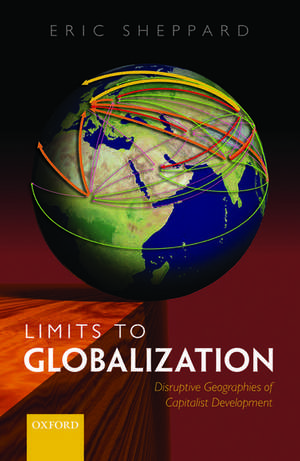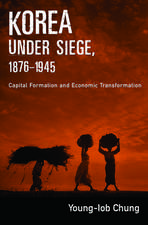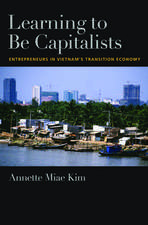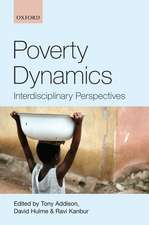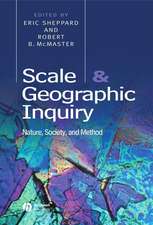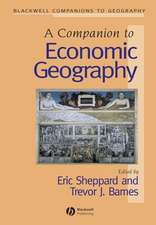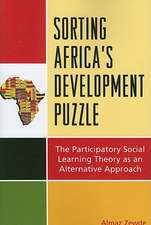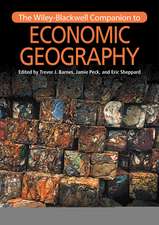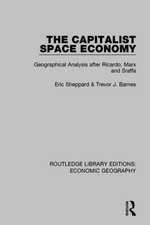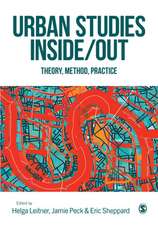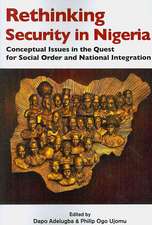Limits to Globalization: Disruptive Geographies of Capitalist Development
Autor Eric Shepparden Limba Engleză Hardback – 29 iun 2016
Preț: 200.85 lei
Preț vechi: 231.27 lei
-13% Nou
Puncte Express: 301
Preț estimativ în valută:
38.43€ • 40.21$ • 31.93£
38.43€ • 40.21$ • 31.93£
Carte tipărită la comandă
Livrare economică 22-28 martie
Preluare comenzi: 021 569.72.76
Specificații
ISBN-13: 9780199681167
ISBN-10: 0199681163
Pagini: 234
Dimensiuni: 161 x 241 x 17 mm
Greutate: 0.5 kg
Editura: OUP OXFORD
Colecția OUP Oxford
Locul publicării:Oxford, United Kingdom
ISBN-10: 0199681163
Pagini: 234
Dimensiuni: 161 x 241 x 17 mm
Greutate: 0.5 kg
Editura: OUP OXFORD
Colecția OUP Oxford
Locul publicării:Oxford, United Kingdom
Notă biografică
Eric Sheppard is Humboldt Chair and Professor of Geography at the University of California. Prior to this he worked in the Geography Department of the University of Minnesota (1976 to 2012), beginning as Assistant Professor and awarded the highly prestigious Regents Professorship in 2008. Eric has research interests in geographical political economy, uneven geographies of globalization, neoliberalism, urbanization in the global South, urban sustainability and environmental justice, and critical GIS. He teaches courses in globalization, economic geography, development and urban change.
